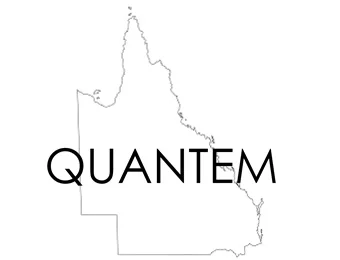Q & A
What is the QUANTEM Project?
The QUeensland Alcohol-related violence and Night-Time Economy Monitoring (QUANTEM) project is researching and evaluating the effects of the Tackling Alcohol-Fuelled Violence legislation that has been implemented in Queensland.
What measures were introduced in Queensland to tackle alcohol-fuelled violence?
Some of these include:
- New extended trading hours approvals for takeaway alcohol after 10pm are prohibited.
- Community clubs are allowed to sell takeaway liquor to signed-in visitors or guests of members or reciprocal members.
- The results of a breath test analysis are admissible as evidence in prosecutions against a licensee (as supplementary evidence) where there is other evidence to suggest a licensee may have committed an offence.
- Reduced extended trading hours, including changes for safe night precinct licensees.
- Sale or supply of high-alcohol content drinks is prohibited from 12 midnight.
- New applications for extended trading hours for gaming can only be sought up to 2 hours past the end of alcohol trade.
- Liquor cannot be taken into or away from an event that is subject to a commercial public event permit or a community liquor permit.
- Networked ID scanners for venues that trade after 12 midnight within safe night precincts will commence from 1 July 2017, unless the venue is operating under an exempt class of licence.
Other changes to this legislation can be found here.
Is this the first time these sorts of measures have been introduced?
This introduction of these measures in QLD is novel as this is the first time such measures have been introduced state-wide, allowing for the evaluation to provide world-first evidence on a state-level approach to managing licensed venues.
Similar measures have been introduced in Newcastle, and in Kings Cross and Sydney CBD (Liquor Amendment Act 2014).
The Newcastle measures included:
- Reduced trading hours: all premises prohibited from trading later than 3.30am
- Lockout: patrons prohibited from entering after 1.30am
- Alcoholic drink restrictions
- Venues are prohibited from supplying the following alcohol products after 10pm:
- No shots
- No mixed drinks with more than 30mLs of alcohol
- No ready to drink drinks with an alcohol by volume greater than 5%
- Not more than four drinks may be served to any patron at one time
- Responsible service of alcohol (RSA) actions. Additional RSA actions included:
- Free water stations on all bar service areas
- RSA Marshall from 11pm until closure (sole responsibility of supervising RSA practices and consumption)
- No stockpiling of drinks and a patron may only purchase up to 4 drinks at one time
- Ceasing the sale and supply of alcohol at least 30 min prior to closing time
- Compliance audits
- Independent compliance audit at least every 3 months
- Management plan
- The development and submission of a Plan of Management to the Liquor Administration Board
- Communication strategies
- All venues subjected to the conditions must enter into an agreement for the sharing of a radio communications network to be used by management and security
The Kings Cross and Sydney CBD measures included:
- Reduced trading hours: Service of alcohol must cease at 3:00am in venues
- Lockout: 1:30am lockouts at hotels, registered clubs, nightclubs and karaoke bars
- A freeze on new liquor licences and approvals for existing licences across the Sydney CBD Entertainment Precinct and continuation of the existing freeze in the Kings Cross Precinct
- A ban on takeaway alcohol sales after 10:00pm across New South Wales
- Extension of temporary and long-term banning orders to prevent troublesome patrons entering licensed premises
- The introduction of a risk based licensing scheme, involving a risk based fee for all licensed premises, whereby the annual licence renewal fee for a venue depends on the type of licence, compliance history and trading hours
- The suspension of online RSA training.
What is the evidence to support the introduction of these measures?
Restricting the trading hours of licensed venues has consistently been shown to reduce alcohol-related harms. More specifically, both the Newcastle intervention and the Sydney CBD and Kings Cross interventions were found to reduce alcohol-related harms.
In 2010, Kypri and colleagues evaluated the reduced trading hours in Newcastle CBD venues, and found a 37% reduction in assault incidents compared to a control site who were not bound by the restrictions. This reduction in assaults was maintained 5-years post intervention. Further, Miller et al. (2014) found that the Newcastle intervention significantly reduced the rate of emergency department presentations for injury between 12am and 5:59am on Saturday and Sunday.
In 2015, Menéndez and colleagues reported a 32% reduction in assaults in the Sydney CBD entertainment district and a 40% reduction in assaults in the Kings Cross entertainment district after the introduction of the measures in 2014.
Who is funding the project?
QUANTEM is funded by the Commonwealth Government under the Australian Research Council (ARC) Linkage Projects scheme (LP160100067), with additional partner funding provided by FARE, Lives Lived Well and ARF, and in-kind support from Turning Point Alcohol and Drug Centre. Additional funding is also being received from the Queensland Government.
Will the Queensland Government have any influence on the outcomes of the research?
No. The Queensland Government will be informed of the progress of the research, however the research will remain independent.
How can I keep in touch with the progress of the research?
Any findings that are released from the project will be accessible on our QUANTEM Publications and Media page.
